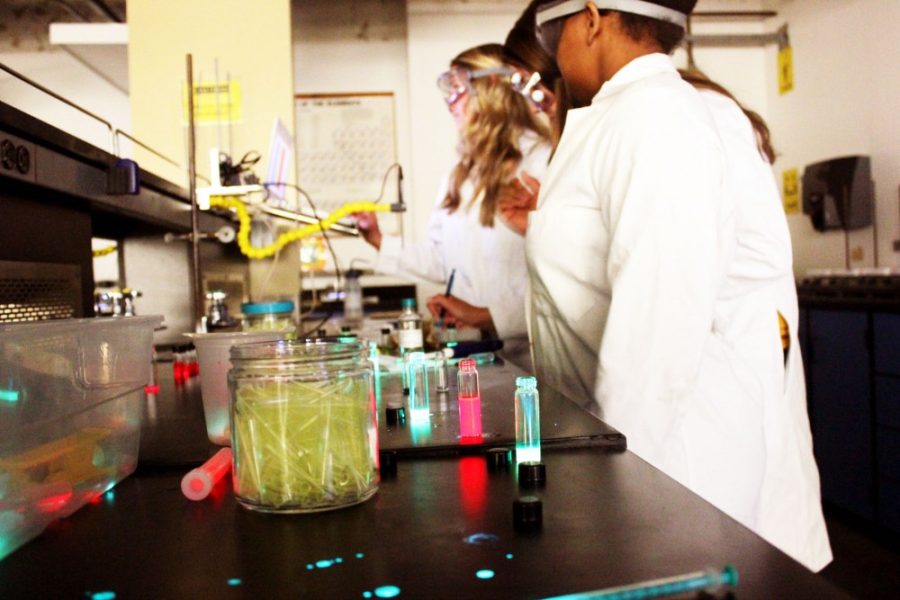The general chemistry courses at the UA have adapted a curriculum change effective this fall.
Headed by John Pollard, general chemistry and biochemistry director, and Vicente Talanquer, a chemistry and biochemistry professor, this new curriculum will be based off the chemical thinking course.
Pollard said the idea for changing the general chemistry curriculum began six years ago due to frustration he and other professors felt with the traditional curriculum. Pollard said he and his colleagues noticed students had difficulty making connections.
The new curriculum for general chemistry is changing from memorization-based to more conceptual-based, Pollard said. Students will be able to understand how a chemist thinks and apply what they have learned to real world situations, according to Pollard.
“It’s trying to illustrate this idea of showing how a chemist thinks versus what a chemist knows,” Pollard said.
Pollard and his colleagues wrote a National Science Foundation grant, which funded the creation of an entirely new curriculum. After receiving the grant, Pollard said they began writing class notes, writing a book and designing lectures.
“It’s a real home-grown project,” he said.
The change of curriculum in general chemistry is also supported by data. According to Pollard, students who took the chemical thinking curriculum to fulfill their general chemistry requirement did better in organic chemistry. Pollard also said students who took chemical thinking, regardless of their grade in the course, did better on the American Chemical Society standardized exam.
Brandon Wentz, a pre-physiology sophomore, took general chemistry first semester and chemical thinking second semester of his freshman year. He said the biggest difference between the two curriculums was class interaction. In general chemistry, Wentz said there was a lot of note-taking, but in chemical thinking there was more interaction with classmates.
Wentz also said chemical thinking was more challenging than general chemistry, but thinks it will help in preparation for organic chemistry. Wentz said his chemical thinking class was curved 11 percent.
“I just found it weird that you could have that low of test averages and then think that’s the proper method to continue classes,” Wentz said.
Mohamed Mohamed, a molecular and cellular biology sophomore, said he learned a lot more in the chemical thinking class he took his freshman year. He said the class emphasized understanding and thinking about chemistry instead of memorization.
“The questions and ideas were very complex, but I think that’s what pushed me to want to learn more,” Mohamed said.









